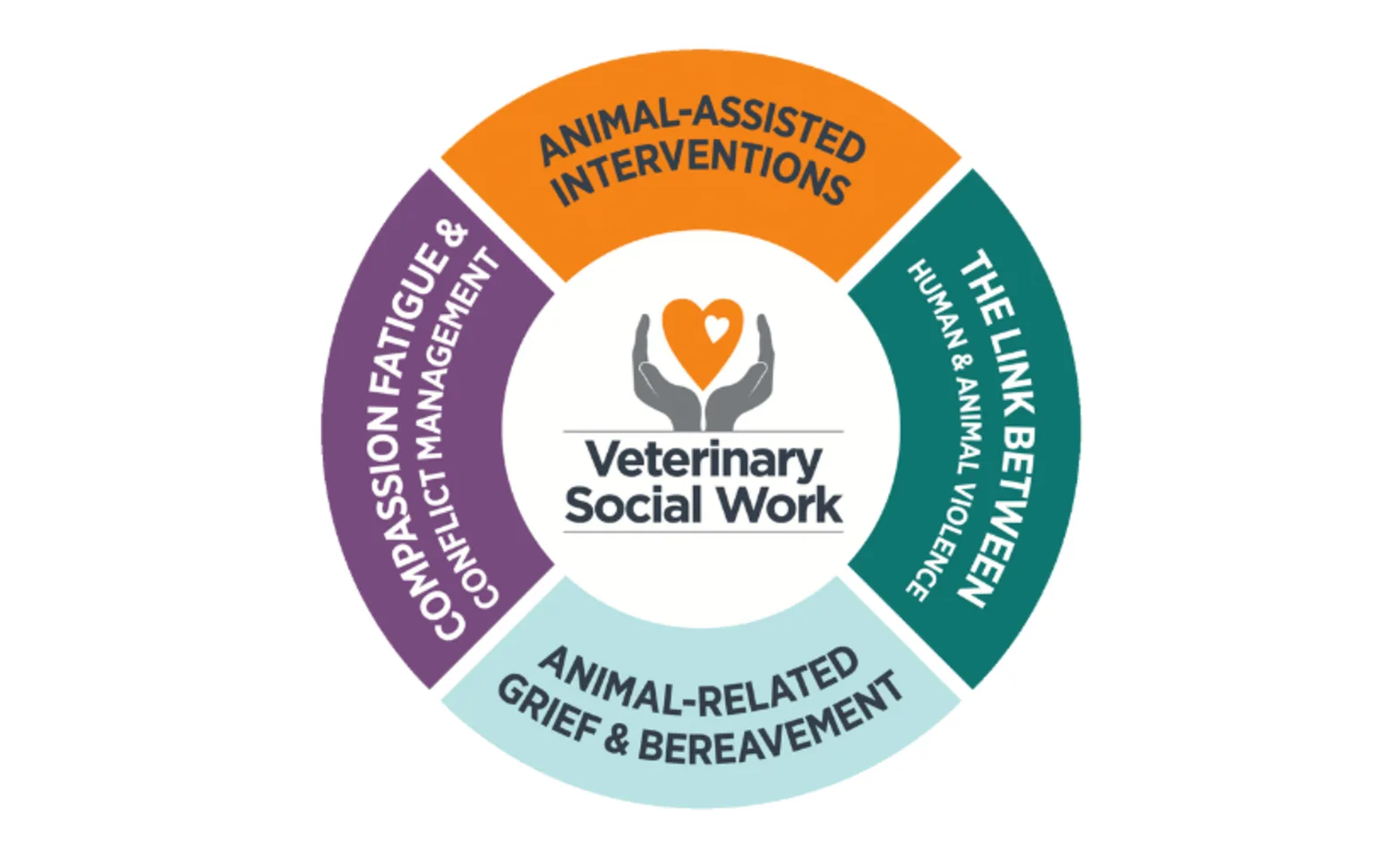Arizona Veterinary Emergency & Critical Care Center

Veterinary Social Work

What Veterinary Social Workers Do
Veterinary Social Workers partner with interdisciplinary teams to enhance patient outcomes, client experience, and caregiver support. Typically, veterinarians and support staff are not trained to work with people experiencing crisis, trauma, or grief. A Veterinary Social Worker can help alleviate some of these pressures by adding professional expertise to high-emotion situations.
Veterinary Social Workers may provide:
Pet loss/grief support (including anticipatory grief).
Navigating pet loss with children.
Ways to memorialize our pets.
Coping with guilt after pet loss.
Guidance in helping pets grieve the loss of their housemate.
Pet loss support group.
Facilitating family discussions around patient care.
Caregiver support (support for those caring for pets with chronic needs).
Support when receiving a new diagnosis/new treatment options.
Support during decision making.
Assessing quality of life.
End-of-life decision making.
Coach team members on empathetic communication skills, de-escalation strategies, and how to have difficult conversations.
Debriefing, crisis support, wellness information, and referrals for ongoing support to team members to curb compassion fatigue.
Connect with community resources to build a network of support.
Supervise social work interns to create learning opportunities and increase program reach.

Meet our Veterinary Social Worker (Gilbert location)
Melissa Strehlow, LMSW
Melissa received her Bachelors of Science in Sociology and Criminal Justice from Northern Arizona University, and subsequently earned a Masters of Social Work degree from Arizona State University. She is currently licensed through the Arizona Board of Behavioral Health as a Licensed Master Social Worker (LMSW).
With a passion for supporting others through some of their hardest days, Melissa began a career as a medical social worker in the human healthcare system. After several years in human health, the opportunity presented itself to transfer over to veterinary medicine. Melissa joined the AVECCC team in 2021, becoming one of the first Veterinary Social Worker in Arizona.
When not at work, Melissa enjoys playing and making memories with her husband and three sons. Her favorite self-care activities include tending her garden and getting creative in the kitchen. Melissa also shares her home with a German Shepherd, Lambeau, and orange tabby, Archie. Don’t let them tell you differently – these two are best friends!
Additional Resources
Dealing with the Death of a Pet
Maricopa County Resources
Arizona Humane Society - Surrender Prevention Programs
Finding Resources for You and Your Pet
Pet Loss & Grief Resources
How to Discuss Euthanasia with Your Child
You can view the resources in PDF format by downloading the free Adobe Acrobat reader.
